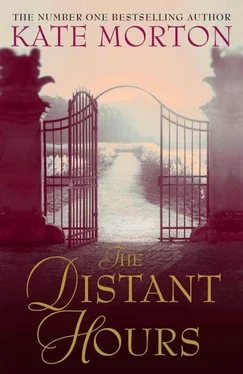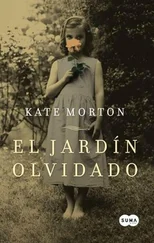So it was, on the Saturday of the library visit, when I tucked my file of newspaper printouts beneath my arm, checked my watch and realized it had only just gone one, I didn’t head for home. Dad was sweating on his kidnapping research, but he’d wait until our Mud Man session that evening. I started for Notting Hill instead. Swept along by the promise of good company, welcome distraction, and maybe even a little something for lunch.
The Plot Becomes Rather Thick
I had forgotten that Herbert was away for the weekend, delivering the keynote address at the Annual Meeting of the Bookbinders Association. The shades at Billing & Brown were down and the office was sombre and lifeless. As I stepped across the threshold and was met by utter stillness, I felt a deflation out of all proportion.
‘Jess?’ I called hopefully. ‘Jessie girl?’
There came no grateful padding, no laboured clamber up the stairs from the basement, just ripples of silence rolling towards me. There is something deeply disquieting about a beloved place relieved of its rightful occupants, and at that moment I’d never been so eager to jostle with Jess for room on the sofa.
‘Jessie?’ Still nothing. Which meant that she had gone to Shrewsbury, too, and I really was alone.
Never mind , I jollied myself along, there was plenty of work to keep me busy all afternoon. Ghosts of Romney Marsh was going to proof on Monday and although circumstances had already gifted it my close attention, there was always room for improvement. I lifted the blinds, switched on my desk lamp, making as much incidental noise as I could, then sat down and leafed through the manuscript pages. I shifted commas, I put them back again. I vacillated over the merits of using ‘however’ in place of ‘but’ without drawing any conclusion and marked the spot for further thought. I similarly failed to reach a firm decision on the next five stylistic queries before deciding it had been madness to attempt concentration on an empty stomach.
Herbert had been cooking and there was fresh pumpkin lasagne in the fridge. I removed a slice, heated it up, and took my plate back to my desk. It felt wrong to eat over the ghost whisperer’s manuscript, so I slid across my file of Milderhurst Mercury printouts instead. I read bits and pieces, but most of all I looked at the pictures. There’s something deeply nostalgic about black-and-white photographs, the absence of colour a visual rendering of the deepening funnel of time. There were lots of shots taken of the castle itself at various periods, some of the estate, a very old one of Raymond Blythe and his twin daughters on the occasion of the publication of the Mud Man . Photos of Percy Blythe looking stiff and uncomfortable at the wedding of a local couple called Harold and Lucy Rogers, Percy Blythe cutting the ribbon at the opening of a community centre, Percy Blythe presenting a signed copy of the Mud Man to the winner of a poetry competition.
I flicked back through the pages: Saffy was in none of them, and the fact struck me as rather unusual. Juniper’s absence I could understand, but where was Saffy? I picked up an article celebrating the end of the Second World War, highlighting the involvement of various villagers. Yet another photograph of Percy Blythe, this time in ambulance uniform. I stared at it thoughtfully. It was possible, of course, that Saffy didn’t like having her photo taken. It was possible, too, that she was staunchly opposed to involvement in the wider community. More likely, though, I felt certain, having seen the pair in action, she was a twin who knew her place. With a sister like Percy, filled with the steel of resolution and a fierce commitment to her family’s good name, what hope had poor Saffy of getting her smile in the newspaper?
It was not a good photograph, very unflattering. Percy was in the foreground and the photo had been taken from below, no doubt in order to capture the castle behind her. The angle was unfortunate, making Percy seem looming and rather severe; the fact that she wasn’t smiling didn’t help matters.
I looked closer. There was something in the background that I hadn’t noticed before, just beyond Percy’s tightly cropped hair. I dug in Herbert’s drawer until I found the magnifying glass, held it over the photograph and squinted. Drew back in amazement. It was just as I had thought. There was someone on the castle roof. Sitting on a ridge by one of the peaks, a figure in a long white dress. I knew at once that it must be Juniper. Poor sad, mad Juniper.
As I looked at the tiny speck of white up by the attic window, I was overcome by a wave of indignant sadness. Anger, too. My feeling that Thomas Cavill was the root of all evil reawakened and I let myself sink once more into my imaginings of the fateful October night on which he’d broken Juniper’s heart and ruined her life. The fantasy was well developed, I’m afraid; I’d been there many times before, and it played like a familiar film, moody soundtrack and all. I was with the sisters in that perfectly set parlour, listening as they wondered what could be keeping him so long, watching as Juniper began to fall victim to the madness that would consume her, when something happened. Something that had never happened before.
I’m not sure why or how, only that clarity, when it came, was sudden and fevered. The dream soundtrack screeched to a halt and the vision dissolved leaving only one fact behind: there was more to this story than met the eye. There had to be. For people didn’t go mad simply because their lover stood them up, did they? Even if they did have a history of anxiety or depression or whatever Mrs Bird had meant when she spoke of Juniper’s episodes.
I let the Mercury drop and sat up very straight. I’d taken the sad story of Juniper Blythe at face value because Mum was right: I’m terribly fanciful and tragic tales are my favourite type. But this wasn’t fiction, this was real life, and I needed to look at the situation more critically. I’m an editor, it’s my job to examine narratives for plausibility, and this one was lacking in some way. It was over-simplified. Love affairs disintegrate, people betray one another, lovers part. Human experience is littered with such personal tragedies; ghastly, but surely, in the greater scheme, minor? She went mad : the words rolled off the tongue well enough, but the reality seemed thin, like something out of a penny dreadful. Why, I had been replaced in similar fashion myself recently and had not gone mad. Not even skirted close.
My heart had started to tick along rather quickly and I was already reaching for my bag, shoving my newspaper file back inside, gathering my dirty plate and cutlery for the kitchen. I needed to find Thomas Cavill. Why hadn’t I thought of it before? Mum wasn’t going to talk to me, Juniper couldn’t; he was the key, the answer to everything lay at his feet and I needed to know more about him.
I switched off the lamp, dropped the blinds and locked the front door behind me. I’m a book person, not a people person, so it didn’t occur to me to do it any other way: with a skip in my step, I hurried back in the direction of the library.
Miss Yeats was delighted to see me. ‘Back so soon,’ she said, with the sort of enthusiasm you might expect from a long-lost friend. ‘But you’re all wet! Don’t tell me the weather’s come in again.’
I hadn’t even noticed. ‘I don’t have an umbrella,’ I said.
‘Well, never mind. You’ll dry off soon enough, and I’m very glad you’ve come.’ She gathered a thin pile of papers from her desk and brought it to me with a reverence befitting transportation of the holy grail itself. ‘I know you said you hadn’t time, but I did a little sleuthing anyway – the Pembroke Farm Institute,’ she said, having noticed, perhaps, that I hadn’t a clue what she was talking about. ‘Raymond Blythe’s bequest?’
Читать дальше












